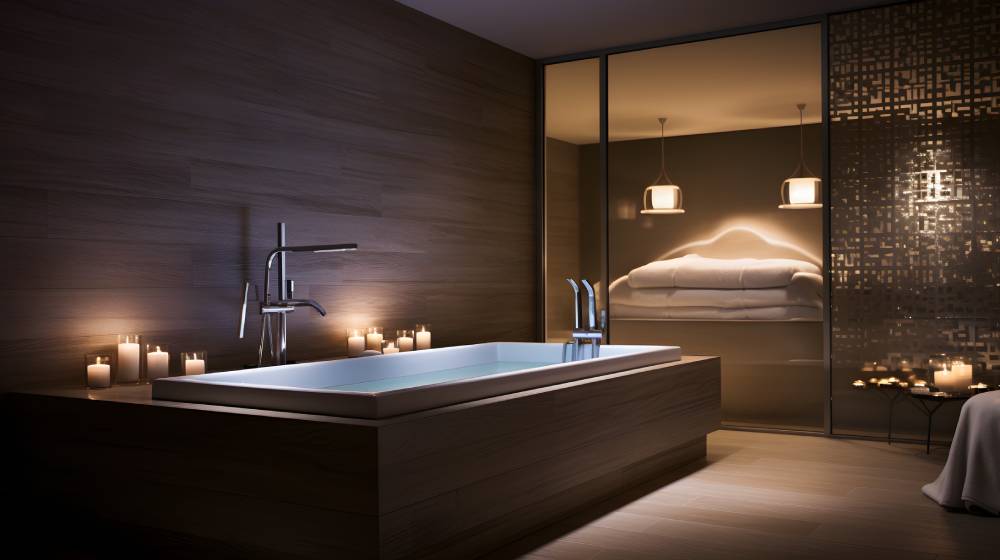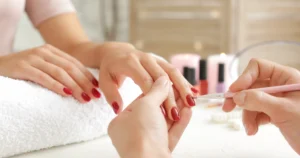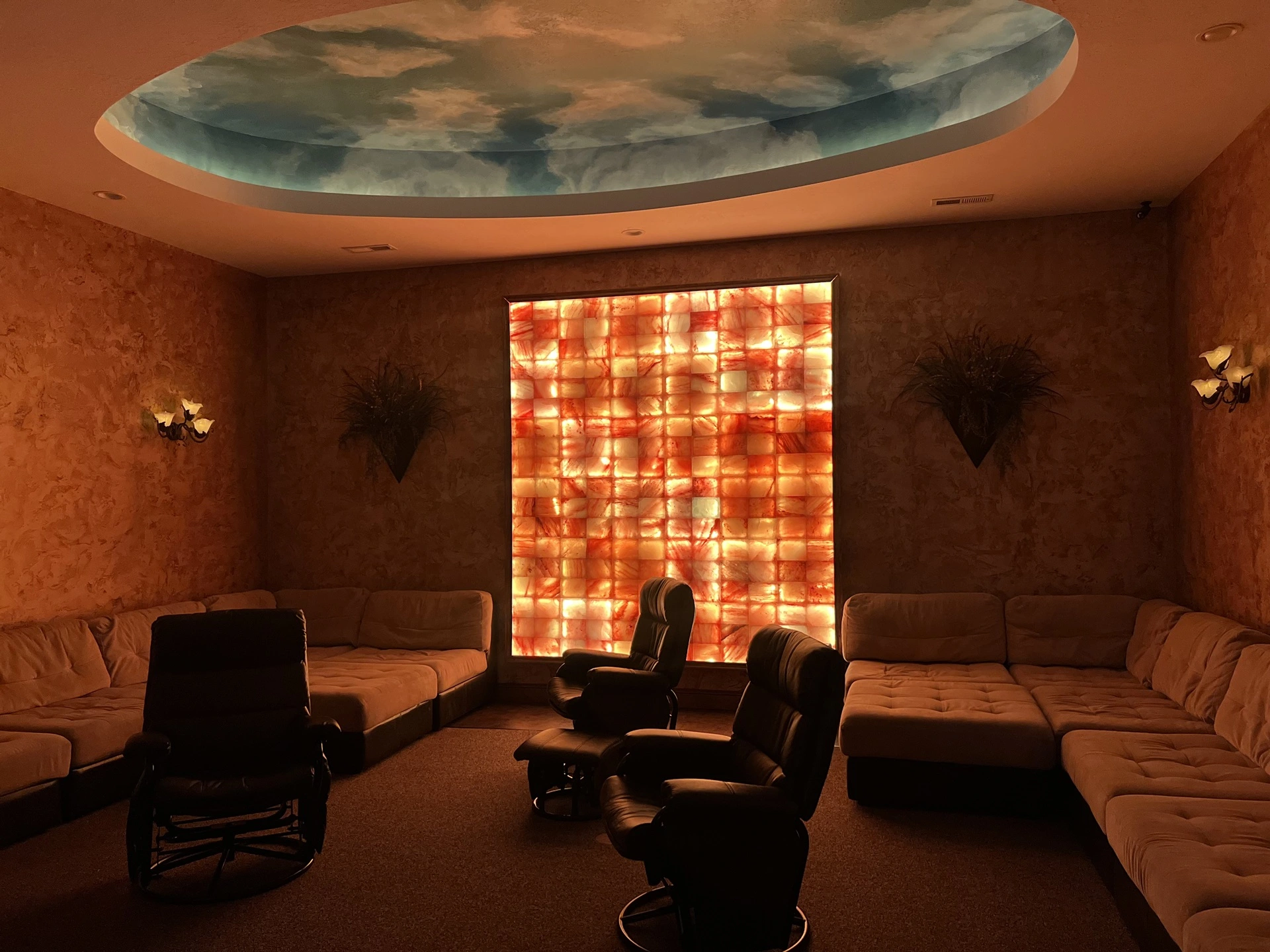Hydrotherapy is a highly effective relaxation technique that effectively soothes both the mind and body in today’s fast-paced, high-stress world. This ancient practice, which involves the therapeutic use of water, has been utilized for centuries across various cultures. But what makes hydrotherapy particularly appealing for managing stress, and how accessible is it in places like Washington Terrace, Utah?
Understanding Hydrotherapy
Hydrotherapy, or water therapy, employs water’s physical properties—temperature and pressure—to aid in health and wellness. It isn’t just about taking a dip in a pool; it encompasses a range of treatments, such as saunas, steam baths, foot baths, cold plunges, and aquatic exercises.
These treatments can vary in intensity and temperature to cater to different therapeutic needs. The versatility of hydrotherapy makes it an excellent option for a wide range of individuals.
Hydrotherapy for Managing Stress
Hydrotherapy, the use of water for relieving stress and improving health, is an effective, multifaceted approach to managing stress. Here’s a detailed look at how hydrotherapy can be used specifically for stress management:
The Basics of Hydrotherapy for Stress Relief
Hydrotherapy harnesses the physical properties of water, such as temperature and pressure, to stimulate the body’s healing response and promote relaxation. This can be achieved through various forms of water therapy, including:
- Warm baths and hot tubs: Soaking in warm water can help relax muscles, decrease pain, and reduce the physical symptoms of stress.
- Steam baths and saunas: Exposure to steam or dry heat helps to release endorphins (the body’s natural painkillers and mood elevators), promotes detoxification through sweating, and relaxes muscles.
- Cold water therapy: Brief exposure to cold water can invigorate the circulatory system, enhance mental clarity, and reduce inflammation.
- Aquatic exercise: Activities such as swimming, water aerobics, or gentle water-based exercises can improve cardiovascular health, ease joint pain, and calm the mind.
How Hydrotherapy Works to Reduce Stress
- Psychological Effects: Water environments have been shown to offer a psychological sense of calm and tranquility. The mere act of being in or near water can significantly reduce stress levels, anxiety, and depression.
- Physical Impact: Water reduces the body’s gravity effect, lessening joint and muscle stress and providing relief to the skeletal system. This weightless feeling can be profoundly relaxing and relieve physical stressors.
- Thermal Regulation: The use of hot or cold water can help regulate the body’s internal temperature. The warmth of the water facilitates an increase in blood circulation while aiding in the removal of harmful toxins from the body, thereby creating a therapeutic and calming effect. Cold treatments may initially shock the body, but they quickly act to invigorate and energize, helping to clear mental stress.
- Hormonal Response: Water therapy stimulates the production of endorphins, which naturally decrease feelings of stress and lead to feelings of euphoria.
Practical Tips for Using Hydrotherapy for Stress Management
- Routine: Incorporating hydrotherapy into your regular wellness routine can help maintain a reduced stress level. Even a simple daily warm shower can contribute to sustained stress management.
- Combination with Aromatherapy: Adding essential oils such as lavender, chamomile, or eucalyptus to a bath can enhance the relaxing effects of hydrotherapy through the benefits of aromatherapy.
- Professional Settings: For more intensive therapy, consider visiting spas or wellness centers that offer hydrotherapy services such as mud baths, hydro-massage, or thermal mineral pools.
- At-home Hydrotherapy: Investing in a hot tub or regularly using a deep soaking tub can provide ongoing access to hydrotherapy benefits.
Hydrotherapy is a versatile, accessible means of managing stress with numerous psychological and physical benefits. Whether utilized at home or in a professional setting, it can play a crucial role in a holistic approach to stress management, improving overall well-being and enhancing quality of life.
Precautions and Considerations
When engaging in hydrotherapy, it’s important to consider both precautions and the specific needs of each individual to ensure the experience is safe and beneficial. Here are several key precautions and considerations to keep in mind:
Health Conditions
- Cardiovascular Issues: Individuals with heart conditions should consult a healthcare provider before participating in any form of hydrotherapy, especially treatments involving extreme temperatures, such as hot tubs or cold plunges, which can place stress on the heart.
- Skin Conditions: People with open wounds or skin infections should avoid communal bathing areas to prevent infections and worsening of their conditions. Likewise, those with sensitive skin or conditions like eczema may react negatively to chlorinated pools or mineral baths.
- Pregnancy: Pregnant women should exercise caution with hydrotherapy. Hot baths and saunas, for example, are typically discouraged, as elevated body temperatures can pose risks during pregnancy. Seek assistance from a qualified healthcare professional and obtain their consultation prior to initiating any new treatment regimen.
- Mobility Issues: Those with mobility limitations should ensure that facilities are equipped with proper access features, like handrails or lifts, to avoid falls or injuries when entering or exiting baths or pools.
Temperature Considerations
- Avoiding Extremes: Excessively hot or cold temperatures can cause shock to the body. It is important to listen to your body’s signals and avoid extreme or uncomfortable temperatures.
- Acclimation: It’s a good idea to accustom your body to saunas and steam rooms by beginning with shorter sessions and then extending them as comfort permits.
Hydration
- Stay Hydrated: The body loses fluids in hot conditions like saunas and steam rooms and when immersed in cold water. Drinking water before and after hydrotherapy sessions is essential to prevent dehydration.
Duration and Frequency
- Monitor Time: Prolonged exposure to intense heat or cold can be harmful. Limit sessions in hot tubs, saunas, and steam rooms to recommended durations (often 15-20 minutes) and ensure that cold therapy is brief to prevent hypothermia or frostbite.
- Frequency: While regular hydrotherapy can be beneficial, excessive use might lead to issues like disrupted body temperature regulation or skin irritation. Balancing sessions with other forms of relaxation and therapy can provide optimal health benefits.
Environmental Safety
- Slip Hazards: Water environments can be slippery. When walking on slippery surfaces, exercise caution and, if possible, always utilize handrails.
- Supervision: Never swim alone or engage in water therapy alone if there are risks involved, such as in deep or potentially hazardous water settings.
Personal Comfort and Privacy
- Personal Preferences: Not everyone finds water-based therapies relaxing. If hydrotherapy isn’t enjoyable, it’s important to consider personal comfort levels and look for alternative relaxation methods.
Hydrotherapy offers numerous benefits, but it’s vital to approach it cautiously, especially if you have health concerns or are new to this type of therapy. Consulting with healthcare professionals, respecting your body’s limits, and using well-maintained facilities can help ensure that your hydrotherapy experience is relaxing but also safe and effective.
Hydrotherapy in Washington Terrace, Utah
If you’re looking for a hydrotherapy provider in Washington Terrace, Utah, you can start by checking local wellness centers and spas, as many offer various forms of water therapy. Among the renowned hydrotherapy providers in Washington Terrace, Utah, is New Image Day Spa, which provides a variety of water-based treatments, including therapeutic baths and hydro-massages, tailored to promote relaxation and wellness. Located conveniently for residents of Washington Terrace and surrounding areas, New Image Day Spa is a great choice for those seeking professional hydrotherapy services.
Conclusion
Hydrotherapy is a popular method for relaxation, as it soothes the mind, relaxes the body, and reduces stress, making it a popular choice for wellness. At New Image Day Spa, we proudly offer Hydrotherapy Treatments that provide a multitude of benefits, including relaxation through soothing spa baths, stress relief via immersion, improved sleep, enhanced skin health, relief from muscle and joint pain, detoxification, mood improvement, social bonding opportunities, and better cardiovascular health through improved circulation. Discover the secret to ultimate relaxation with hydrotherapy treatments, where soothing waters and rejuvenating therapies melt away stress and enhance overall well-being.




